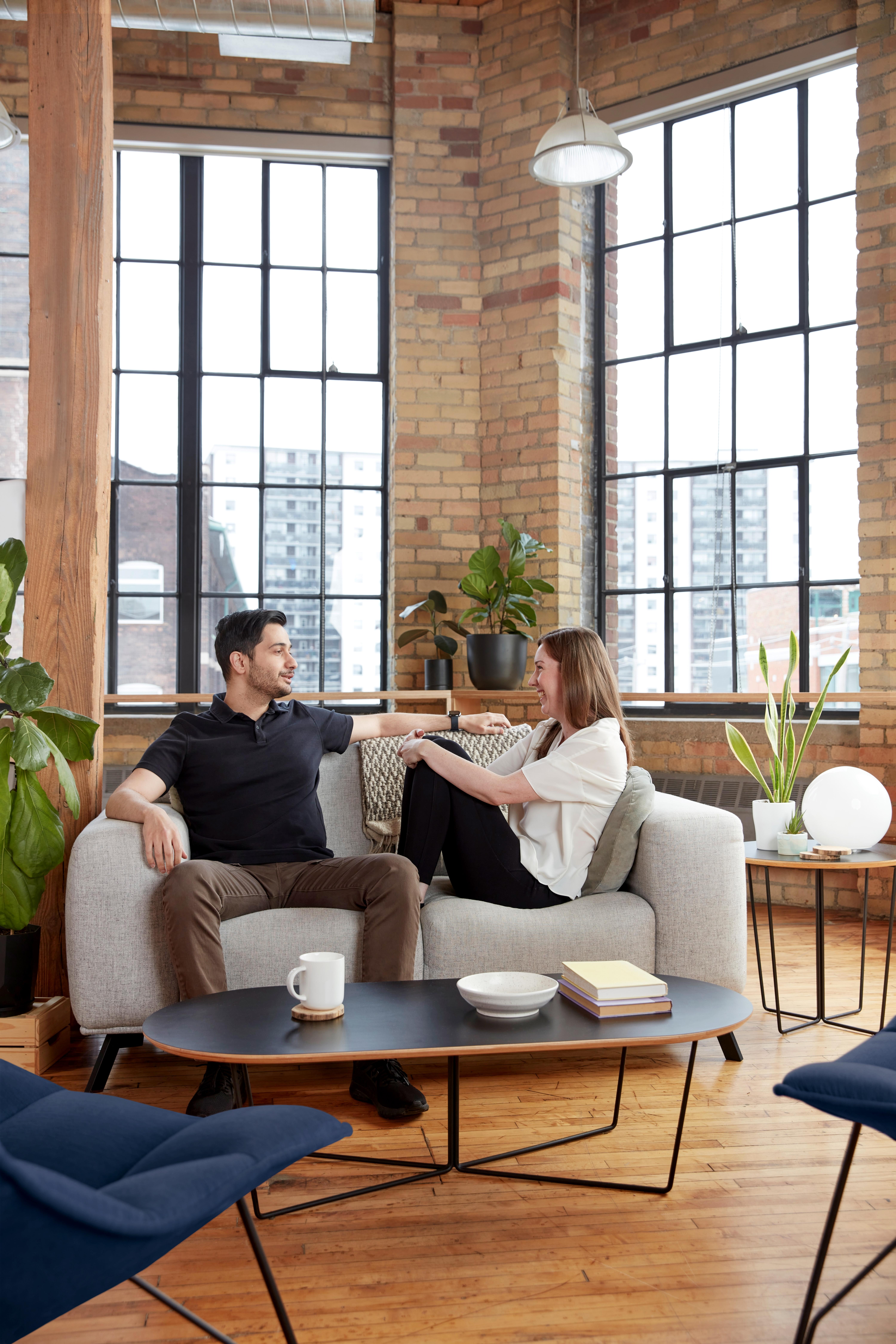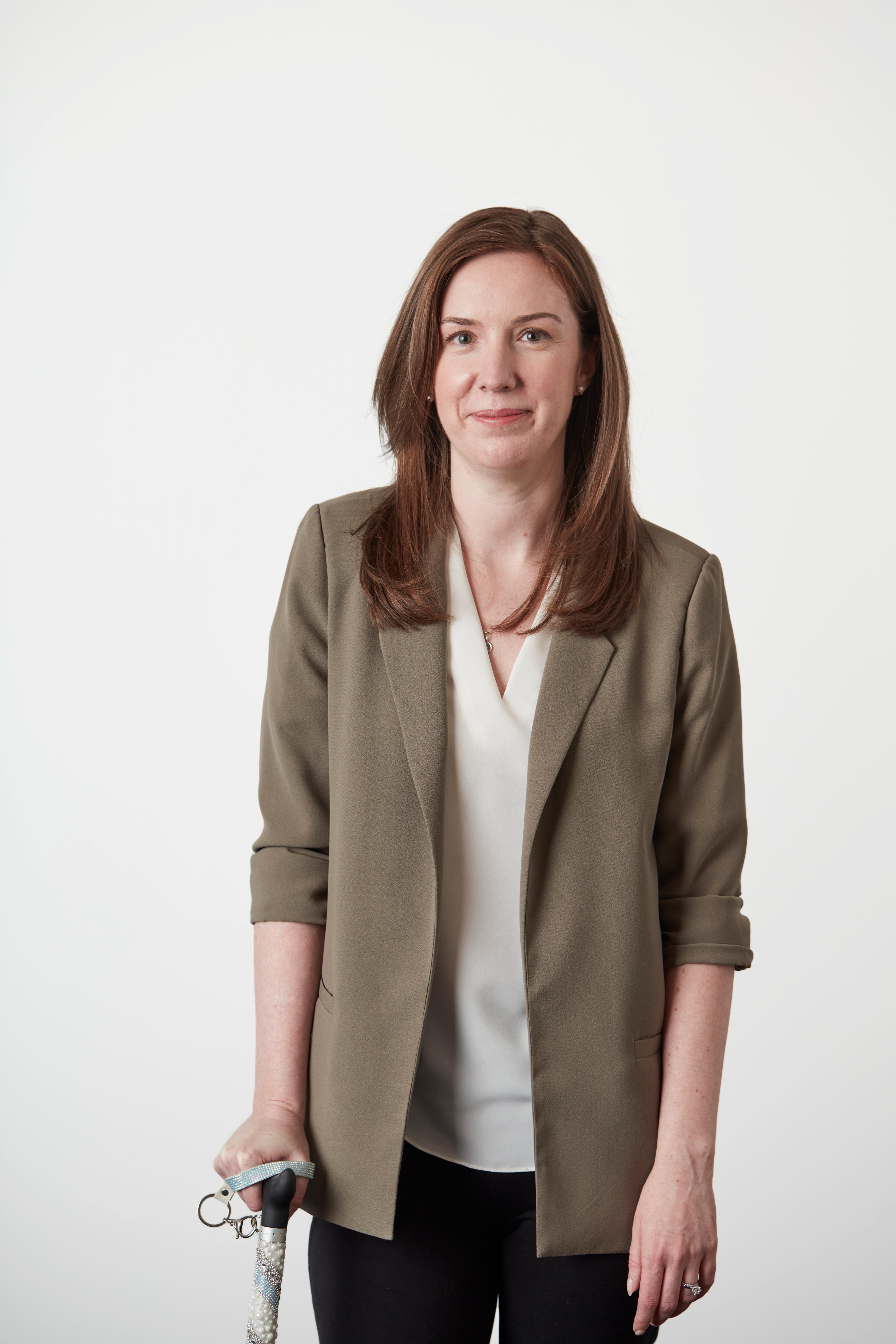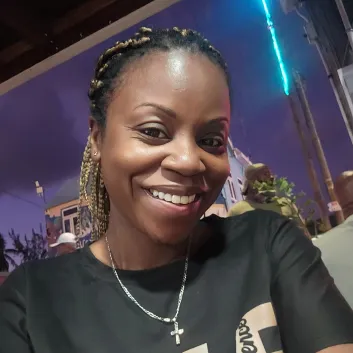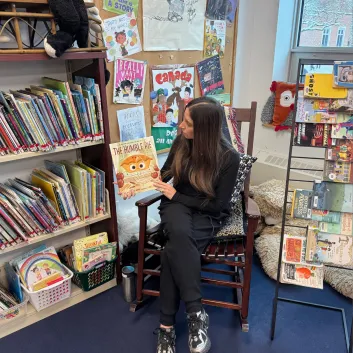- From the Community
- May 28, 2024
More Than My Diagnosis
I don't want to be defined by my disease. I don't want to be the girl with MS. I just want to be Karen.
“Living with MS has taught me how to grieve my past able-bodied life. It’s taught me how to accept my new disabilities and my new normal. But most importantly, it's taught me to be resilient, to fight, to seek answers, and to continue to believe in a better health outcome.

My name is Karen and I’m a 36-year-old woman living with relapsing-remitting multiple sclerosis. I'm a sister to an older brother, a daughter, and as of June 2022, a wife—my most favourite role.
Before my diagnosis, I enjoyed a successful award-winning career in the luxury retail sector. Although I'm no longer able to work full-time, I'm still searching for a position that aligns with my new physical disabilities and cognitive functioning challenges. I guess you could call me a work in progress.
In the meantime, I'm so proud to partner with MS Canada as an MS Ambassador. I completely identify with their mission to empower, connect, and create positive change, because I like to believe I'm doing just that. I've found new purpose and I've reinvented myself. A new authentic Karen, open and vulnerable.
My MS journey started like many Canadians. It started with a misdiagnosis. I woke up in 2018 with full leg paralysis from my hip down on my right side. After seeking answers and going to different healthcare professionals, I still was left with no information and no understanding as to what was happening to me.
By the end of 2019, I requested an MRI from my family doctor, and by early 2020, I was diagnosed with relapsing remitting multiple sclerosis, resulting in over 70 lesions on my brain and an innumerable amount in my C-spine. It completely changed my life, totally upside down, and I had to reassess what my next steps were going to look like, because life as I knew it had changed forever.
When I was finally diagnosed, I made three phone calls. One to my family, one to my partner, and one to MS Canada. I consider two different support systems in my life: my personal and my professional. My personal is made up of my friends and family and other people living with MS who can really relate to me, support me, encourage me, remind me of my value, and love me unconditionally. They can maintain my different emotional challenges and ultimately lift my spirit.
From a professional and educational standpoint, that includes my healthcare team, my home care team, and of course, MS Canada, who provides me with resources and tools for me to live the best life I can.

An average day in my life really starts with negotiating my level of participation and engagement. I feel that I have two workable hours throughout the day. So, I need to prioritize and assess what my yesterday felt like.
My MS body really tells me what my day is going to look like. Did I suffer from insomnia? Did I have incontinence issues? Do I have severe fatigue? Am I able to tie my own shoelaces, go grocery shopping, prepare a meal? I look for successes in each day by just participating in them.
Because of my disease, I feel like I have so little control. One of the few things I can control is the way I can fundraise, educate, and contribute. I just want to do as much as I can in the ways I can, for as long as I can.
MS Walk is extremely personal to me. It's a time where I give myself permission to accept the love and support I'm receiving from people who believe in me, and it’s a way for me to show up for them. More importantly, when I'm walking, I feel united with community. I'm reminded of everyone's stories, and I carry them with me every step I take. It’s very emotional for me, but I have so much pride that in the future, real change will happen. And at some point, we will find a cure.
I’m very open on social media. It's a space where the untold stories can be seen, and the unseen stories can be told. It’s important to be transparent so we can better educate people about what living with MS looks like, and people living with MS can offer support, encouragement, and best practices.
I wish more Canadians knew that Canada has one of the highest percentages of multiple sclerosis in the world. I wish more Canadians knew what MS was. I wish more Canadians knew that our disease is regarded as an invisible illness. I wish that when I ride a bus or get on public transportation and you find me in the disability or priority seating section, that you do not question or judge, but instead, take a moment to recognize that there's a story, and you realize there’s a reason and a right to me taking that seat.
MS manifests differently in everyone; there's different progressions and different attitudes, but we all share the same disease. It’s very important not to compare. Each person's experience is individual, and we should celebrate all the successes and acknowledge each person's experience.
When I think of my future, it's no different than how I approach my disease. It changes from day to day. But the one thing that's consistent and never changes is my hope for the future. I do believe and hope that one day I will be able to improve my health and my well-being. I do believe that the dreams that we dream can come true, and I do hope that one day we will find a cure.
MS has taught me that I have value and self-worth beyond my profession, and that although I don't have a professional title anymore to show how I’m ‘contributing to society,’ I'm a good human being. And that's enough. I don't want to be defined by my disease. I don't want to be the girl with MS. I just want to be Karen.”
- Log in to post comments

